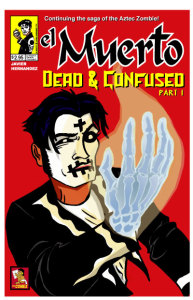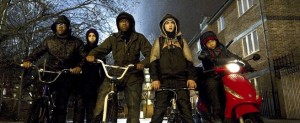When I was a kid, I had a tower (and I mean that literally) of my favorite comic books. They leaned against the wall and were braced on either side by sturdy objects — milk crates or chairs or something like that. I seem to recall that the tower reached the ceiling, but I’m sure that’s not possible. It was most likely a few feet high and just seemed imposing to a six-year-old.
In any case, the tower is long gone, but I still have a few of those prized comics, issues of the X-Men and Conan the Barbarian and House of Secrets and the like. Like a lot of Gen Xers, I used comic books as a gateway drug to novels.
But even back in the day, when my love for comic books could not be quantified, I noticed something. It’s the same thing that Javier Hernandez, creator of the El Muerto comic book, noticed.
Hernandez says, “There is one thing I didn’t see in those books. I didn’t see me in there. I didn’t see us, Latinos.”
Nope, there were very few Hispanic characters or stories presented. However, a new generation of writers is looking to Latino culture for inspiration. It’s a full-fledged trend, illustrated by the fact that the Latino Comics Expo was held recently to spotlight Hispanic creators like Hernandez. His creation is a Hispanic hero based on a combination of Aztec mythology and Mexican folklore. I mean, how cool is that?
Now, as we all know, comic books often feature thematic elements that appeal to teenagers and/or geeky middle-aged men. These include stories of heroes like the Jonah Hex and Spider-Man, who were outsiders to mainstream culture. It’s not much a stretch to say that Latinos have long appreciated the theme of being a misunderstood minority.
And now that metaphorical subtext is a little more concrete. Comic books from Hispanic authors range from traditional superhero formats to experimental stories to reality-based tales, such as the life of a Latino punk fan growing up in California.
Personally, I’m waiting for a Hispanic version of Wolverine. Now that would be something.






